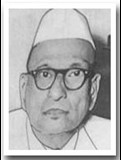Generalities
Commonly known as water hemlock, exerts its chief influence on BRAIN and NERVOUS SYSTEM, producing violent spasmodic effects. Convulsions, trismus, tetanus, hiccough. jerks; of head, and twitchings of various parts; of arms and fingers. Frightful contortions. Spasms move downwards with terrific violence, with sudden shocks through body or head, then rigidity or shrieks; then prolonged unconsciousness; OPISTHOTONOS, and frightful facial distortions; with bloody foam from the mouth, then utter prostration; spasms are renewed by touch, by noise, loud talking. Epilepsy. Spasms of diaphragm, hiccough; of gullet. Muscles become rigid. Cerebro- spinal meningitis. Concussion of brain. Troubles arising from shaving. Catalepsy. Does not remember what has happened, does not recognise anybody but answers well.
Better
Thinking of pain. Warmth.
Worse
INJURY TO THE BRAIN; to oesophagus, from splinters in flesh. Jar. Noise. Touch. Cold. Dentition. Suppressed eruptions. Draughts. Tobacco smoke. Turning the head.
Mind
Childish behaviour. Sings, dances, shouts. Moaning, howling, and weeping. Excessively affected by sad stories. Mistrust and shunning of man. Despises others. Confounds present with the past. Mania, with dancing, laughing and ridiculous gestures. Feels as if he was in a strange place. Everything appears strange and terrible. Violent. Rash. Delirium. Sad when seeing others happy. Memory blank, for hours or days. Falls to ground and rolls about with or without convulsions. Feels herself unsteady; over- estimation of himself. Does not remember what has happened, does not recognise anybody but answers well.
Head
Twisted or turned to one side (spasms). Jerks the head. Congestion of head, with vomiting and purging. Vertigo Objects move from side to side or approach and recede. Sudden violent shocks through the head. Head symptoms better by thinking of it, sitting erect and passing flatus. Thick yellow scabs on head. Sweat during sleep. Meningitis. Vertigo, with gastralgia and muscular spasms. Head retracted, spine rigid.
Eyes
Pupils dilated in concussion of the brain; contracted in spasms. Letters go up and down or disappear, when reading. When staring at any object, or sitting in apparent sleep the head inclined forward. Squint-periodic, spasmodic; after a fall or blow. Effects of exposure to snow. Objects appear double and black. Eyes roll, jerk and stare. Eyelids twitch.
Ears
Bleeding; in cerebral troubles. Sudden detonation esp. on swallowing. Ears hot or cold.
Nose
Slight touch causes it to bleed. Frequent sneezing without coryza.
Face
Red; or pale and drawn, sweaty; distorted horribly or ridiculously Lock jaw. Confluent pustules forming thick scabs. Epithelioma of lips.
Mouth
Foam in and around. Grinding of the teeth, with lock jaw. Swelling of the tongue; speech difficult. Bites the tongue.
Throat
Feels as if closed or grown together. Spasms of oesophagus can not swallow; from injury; of fish bone etc. Effects of swallowing sharp fish bones. Stricture of oesophagus.
Stomach
Craves coal, chalk and many other strange articles from inability to distinguish between edible and things unfit to be eaten, etc. Loud hiccough; with crying; alternating with thoracic spasms. Vomiting, of bile, of blood on stooping, on rising in pregnancy. Throbbing in pit of the stomach with distension. Water brash; saliva flows from mouth, with heat all over.
Abdomen
Colic, with convulsions, with vomiting. Flatulence with anxiety and crossness.
Urinary Organs
Involuntary urination, in old men. Urine is passed with great force. Stricture of urethra; after inflammation; gonorrhoea. Paralysis of bladder.
Male
Testes drawn up towards external abdominal rings.
Female
Spasmodic states when menses do not appear. Coccyx painful during menses. Puerperal convulsions.
Respiratory organs
Chest feels tight, can hardly breathe. Heat or cold sensation in chest.
Heart
Trembling palpitation of the heart. Feels as if the heart stops beating; with faint feeling.
Neck and Back:
Spasms and cramps in muscles of neck, head drawn backwards. Opisthotonos. Jerks in coccyx during menses.
Extremities
Jerking and twitching in the arms and fingers. Jerking in left arm all day. Trembling of left leg. Feet tilt inwards while walking. Feet turned inward and toes turned upwards in spasms. Curved limbs cannot be straightened; nor straight ones bent. Swings feet in half circle while walking.
Sleep
Bites the tongue in sleep. Deep sleep. Dreams vivid, but unremembered.
Skin
Pustules coalesce into thick, yellow massive scabs; worse head and face. Impetigo. Eczema without itching. Suppressed eruptions cause brain disease. Barber’s, baker’s itch.
Related
Cupr; Strych.

